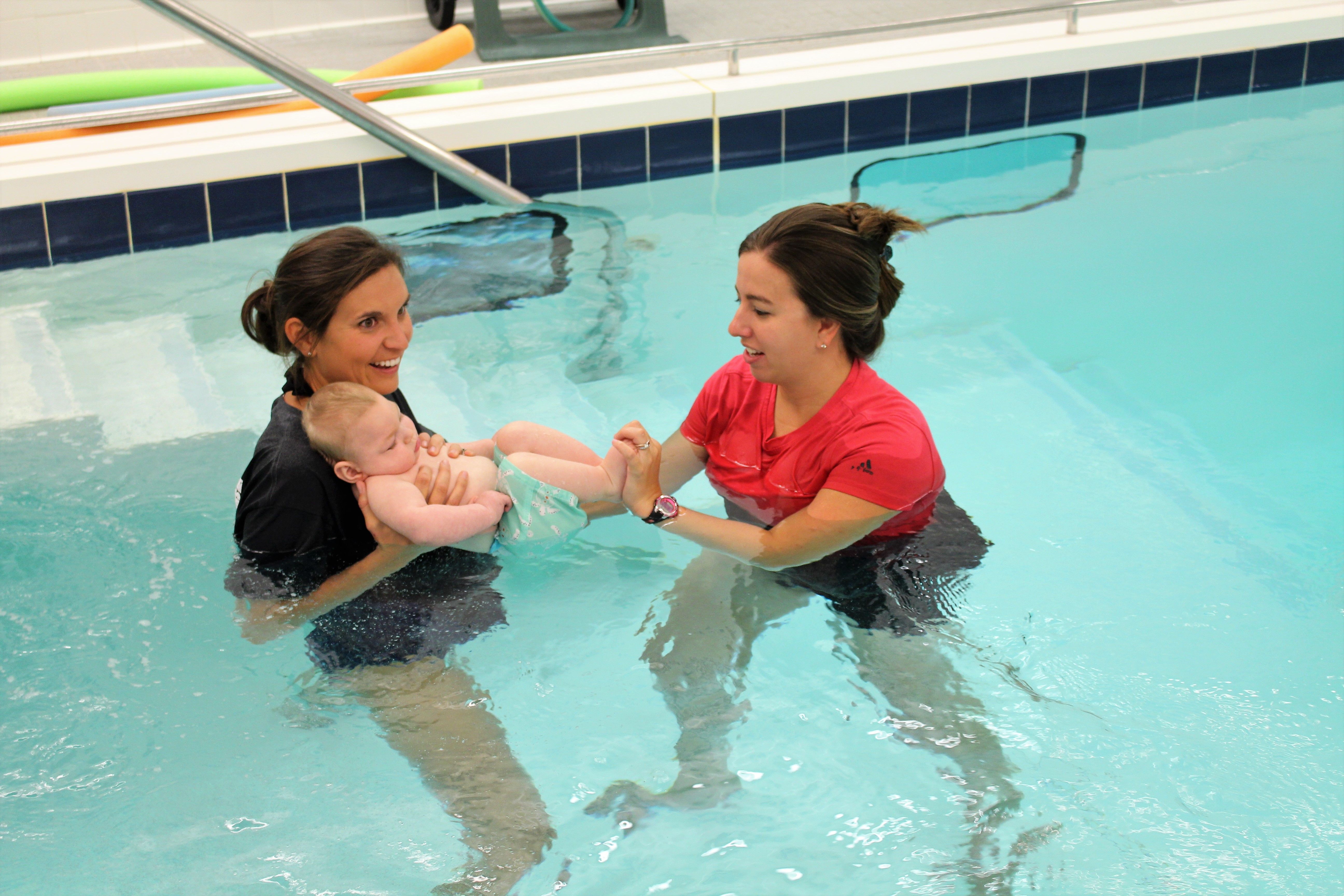Aquatic Therapy

Aquatic physical and occupational therapy is a skilled therapy practice provided in an aquatic environment in an effort to improve function, aerobic conditioning, balance, muscle strength, flexibility, and body and gait mechanics. Aquatic therapy complements and serves as a segue to traditional land-based therapy as it provides an environment that reduces the stresses placed upon aching joints and muscles. The properties of the water listed below create an ideal therapeutic environment.
• Warm water temperature – provides a relaxing environment and patient comfort through the increased blood supply to sore muscles
• Viscosity – provides resistance against movements of the body/extremities in the water for muscle strengthening and enabling rehabilitation progression
• Buoyancy – reduces the effects of gravity on aching joints, allowing your body part to float, reduce soreness and/or tightness of muscles, and increasing range of motion
• Hydrostatic pressure – provides support and stabilization for improved balance and tolerance to dynamic activity while improving cardiovascular return and respiratory muscle strengthening
• Turbulence – provides increased resistance to the task and a greater challenge to balance training
The physical and occupational therapists at Franciscan Healthcare Rehabilitation provide a wide range of therapeutic services in our therapy pool. Our facility’s 7,500-gallon SwimEx pool includes an underwater stationary bicycle, an adjustable water current (0 – 6.5 mph), variable water depths (4 – 6 feet), and a hydraulic lift chair system or stairs available for entry. We incorporate the water’s natural properties, along with flotation devices, weighted equipment, and equipment to challenge coordination and agility in order to provide optimal rehabilitation intervention and outcomes.
Conditions suitable for aquatic therapy rehabilitation:
• Arthritis
• Post-arthroscopic surgery
• Autism
• Balance disorders
• Cerebral Palsy
• Chronic Pain
• Joint reconstruction/replacement surgery
• Low back pain
• Orthopedic Injuries
• Parkinson’s disease
• Multiple Sclerosis
• Rheumatoid Arthritis
• Scoliosis
• Spinal Cord Injury
• Sprains/strains
• Stroke
• Traumatic brain injury
